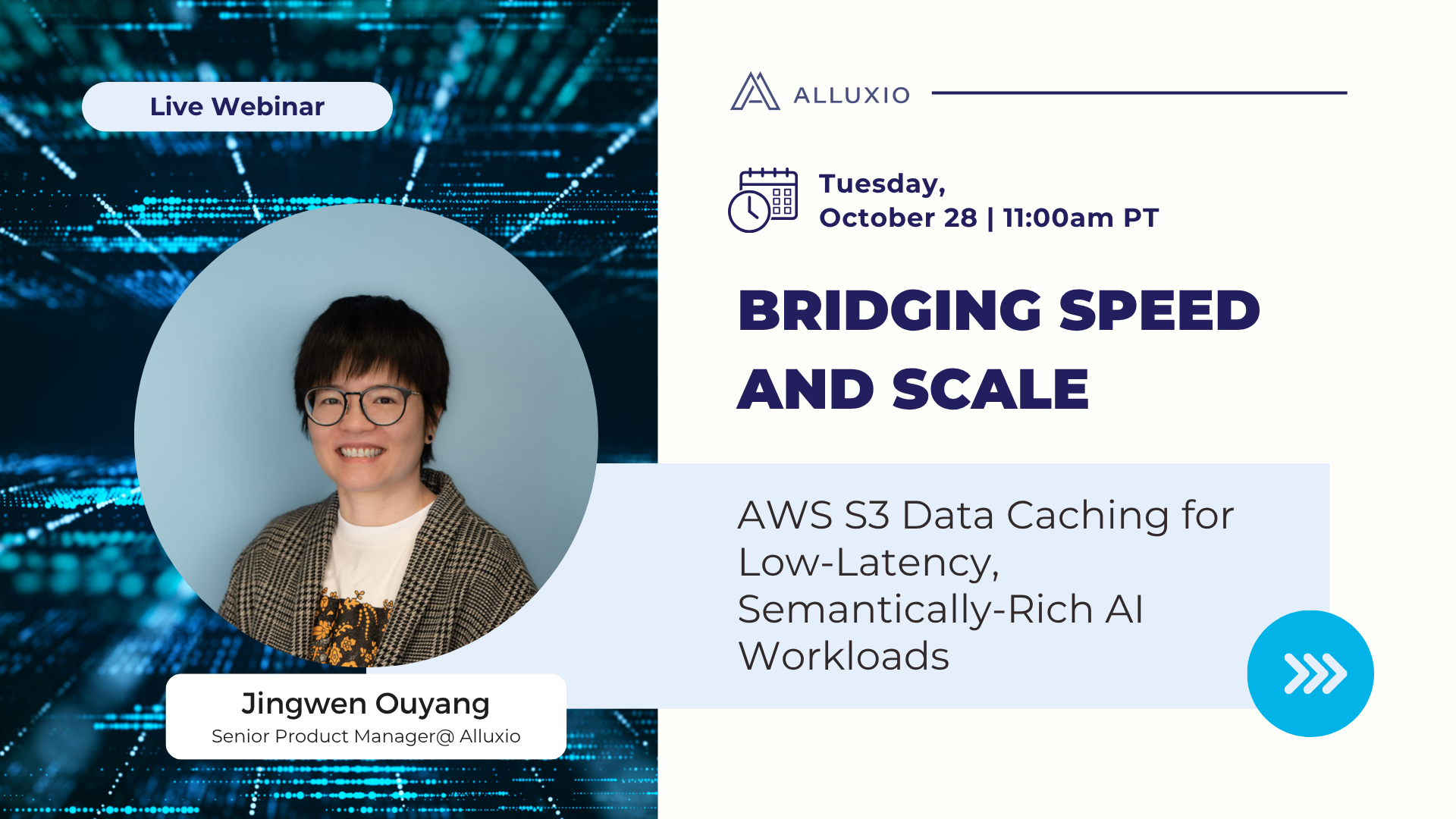Tuesday April 1, 11am PT

Deepseek’s recent announcement of the Fire-flyer File System (3FS) has sparked excitement across the AI infra community, promising a breakthrough in how machine learning models access and process data.
In this webinar, an expert in distributed systems and AI infrastructure will take you inside Deepseek 3FS, the purpose-built file system for handling large files and high-bandwidth workloads. We’ll break down how 3FS optimizes data access and speeds up AI workloads as well as the design tradeoffs made to maximize throughput for AI workloads.
This webinar you’ll learn about how 3FS works under the hood, including:
✅ The system architecture
✅ Core software components
✅ Read/write flows
✅ Data distribution/placement algorithms
✅ Cluster/node management and disaster recovery
Whether you’re an AI researcher, ML engineer, or infrastructure architect, this deep dive will give you the technical insights you need to determine if 3FS is the right solution for you.
Speaker Bio
Stephen Pu, Staff Software Engineer at Alluxio, has over 15 years of experience in software R&D for data centers and distributed storage systems. He has been involved in the core product development and design of large-scale distributed data platforms at IBM, HPE, and Fortinet. Stephen has deep expertise in the performance, scalability, and reliability of distributed data systems, with a strong understanding of architectural design in these areas.
Sign up to the event
Thank you for registering for the webinar! You’ll receive the Zoom link via email shortly.
.png)
Events

Fireworks AI is a leading inference cloud provider for Generative AI, powering real-time inference and fine-tuning services for customers' applications that require minimal latency, high throughput, and high concurrency. Their GPU infrastructure spans 10+ clouds and 15+ regions, serving enterprises and developers deploying production AI workloads at scale.
With model sizes reaching 70GB+, Fireworks AI faced critical challenges: eliminating cold start delays, managing highly concurrent model downloads across GPU clusters, reducing tens of thousands in annual cloud egress costs, and automating manual pipeline management that consumed 4+ hours weekly. They chose Alluxio as their solution to scale with their hyper-growth without requiring dedicated infrastructure resources.
In this tech talk, Fireworks AI Software Engineer Akram Bawayah and Bin Fan, VP of Technology at Alluxio, share how Fireworks AI uses Alluxio to power their multi-cloud inference infrastructure.
They discuss:
- How Fireworks AI uses Alluxio in its high-performance model distribution system to deliver fast, reliable inference across multiple clouds
- How implementing Alluxio distributed caching achieved 1TB/s+ model deployment throughput, reducing model loading from hours to minutes while significantly cutting cloud egress costs
- How to simplify infrastructure operations and seamlessly scale model distribution across multi-cloud GPU environments

Amazon S3 and other cloud object stores have become the de facto storage system for organizations large and small. And it’s no wonder why. Cloud object stores deliver unprecedented flexibility with unlimited capacity that scales on demand and ensures data durability out-of-the-box at unbeatable prices.
Yet as workloads shift toward real-time AI, inference, feature stores, and agentic memory systems, S3’s latency and limited semantics begin to show their limits. In this webinar, you’ll learn how to augment — rather than replace — S3 with a tiered architecture that restores sub-millisecond performance, richer semantics, and high throughput — all while preserving S3’s advantages of low-cost capacity, durability, and operational simplicity.
We’ll walk through:
- The key challenges posed by latency-sensitive, semantically rich workloads (e.g. feature stores, RAG pipelines, write-ahead logs)
- Why “just upgrading storage” isn’t sufficient — the bottlenecks in metadata, object access latency, and write semantics
- How Alluxio transparently layers on top of S3 to provide ultra-low latency caching, append semantics, and zero data migration with both FSx-style POSIX access and S3 API access.
- Real-world results: achieving sub-ms TTFB, >90% GPU utilization in ML training, 80X faster feature store query response times, and dramatic cost savings from reduced S3 operations
- Trade-offs, deployment patterns, and best practices for integrating this tiered approach in your AI/analytics stack
Speaker:
Jingwen Ouyang is a Senior Product Manager at Alluxio with over 10 years of diverse data experience. Previously, she has worked as a Data Engineer at Meta and SanDisk. Jingwen received her BS and MS of EECS from MIT. She’s also a proud mom of her 2-year-old border collie, a certified snowboard instructor, and has a strong passion for basketball.

